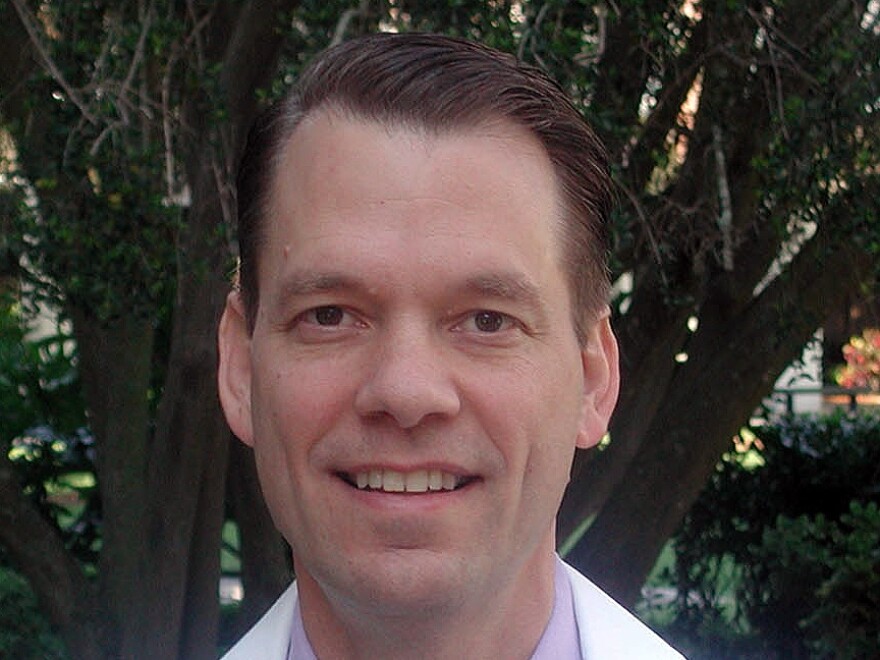When science bumps up against politics, it can get bruised, even distorted beyond recognition.
Dr. Richard Roetzheim, a family medicine professor at University of South Florida, says that is happening to him. He says his studies are being used in misleading ways by conservative opponents of Medicaid expansion under the Affordable Care Act.
They cite his studies as evidence that Medicaid's quality of care is poor. Some go so far as to say that Medicaid is worse than no coverage at all.
"I was absolutely dumbfounded by that," Roetzheim said. "I really felt it was a mischaracterization of the research we were doing."
He is not alone. It's happening to at least half a dozen other medical researchers around the country as anti-"Obamacare" politicians and pundits look for ammunition to shoot down Medicaid-expansion proposals.
At last count, according to Avalere Health, states are split almost evenly between accepting federal funds to expand Medicaid on Jan. 1. It would cover low-income adults who were left out of Medicaid in the past.
Florida is one of the states that Avalere has marked as "leaning no." The Legislature is on track to end its regular session today without reaching agreement to accept federal funds. The Senate and Gov. Rick Scott said yes, but the House said no.
House Republicans argued that the federal government can’t afford to expand Medicaid. Florida was in line to receive $51 billion over 10 years in federal funds.
Other opponents say there aren't enough doctors and other health professionals to cope with a new flood of patients. Some in the Florida Legislature have said they worry that the new flood of patients would make it hard for senior citizens to get access to a doctor.
But the most controversial claim is that Medicaid is useless, “broken.” This view got some ammunition on Thursday when the New England Journal of Medicine published an article by a Harvard team on an experiment in Oregon.
Comparing patients enrolled in Medicaid for up to two years with a similar group who weren't in the program, they found there wasn't significant improvement in certain physical-health measures such as blood pressure and cholesterol.
On the other hand, there was a 30 percent drop in depression and much less financial hardship among the Medicaid enrollees.
It could be that there is a problem with the quality of care in Medicaid, as well as a shortage of physicians who take it. Or it could be that it takes more time to show significant gains in physical health.
But in any event, the new study did not show that Medicaid patients were worse off.
Louis Jacobson, a senior researcher at PolitiFact.com, began looking into such claims in March after Texas Republican Sen. Ted Cruz said at a political event: "If you look at the data, those who are covered by Medicaid receive substantially worse health-care outcomes than do those in private insurance or even those with no insurance at all."
Jacobson said he thought that sounded odd, so he began checking with numerous experts on Medicaid. When he asked for references from Cruz' staff, he got opinion columns, white papers and brochures that made similar claims and footnoted the same research.
He checked the citations and contacted those familiar with the studies.
"Basically everybody we spoke to, including authors of the studies, said that was a misreading of the papers," Jacobson said.
So PolitiFact.com, a prize-winning fact-checking site operated by the Tampa Bay Times, rated Cruz' claim "False." Both Jacobson and Roetzheim moved on, thinking the matter was resolved.
But then the same claim arose in the Florida House, where Republicans were staunchly against accepting funds to expand Medicaid. In both a written report and in debate, they argued that Medicaid was "broken" and no improvement over being uninsured.
State Rep. Richard Corcoran, chairman of the House Health and Human Services, raised the results of Roetzheim's research in debate: "You have four times greater likelihood than a privately insured person of being diagnosed with late-stage melanoma," he said. "In my own backyard, USF did a study and it showed patients diagnosed with breast cancer were likely to die in four years as compared to those in private insurance."
Corcoran, who is from Pasco County, said he believed that no one in his district would benefit from Medicaid expansion, vowing to "fight to the last breath" to keep them from being covered.
Uninsured patients were often signed up for Medicaid AFTER their cancer was found, often when the disease had progressed to a late stage, Roetzheim said.
What is it Roetzheim did that became so controversial? He used the state's cancer registry to compare patients' outcomes according to their insurance status. In a series of studies, he found that Medicaid and uninsured patients have similar mortality statistics; both do worse than privately insured patients.
That's partly attributable to lower levels of education and income, he said, but there is a much greater factor: Uninsured patients were often signed up for Medicaid AFTER their cancer was found, often when the disease had progressed to a late stage, Roetzheim said.
He said he wouldn't assert that Medicaid was as good as private insurance, but said it's "far superior to the care they're getting now, which is no care."
When he saw the results of his studies were caught up in "political spin," Roetzheim said, "I was actually quite shocked."
"I always assumed that my work would be used for policy decisions that helped the uninsured and helped expand access to health care."
Instead, it's the reverse.
"People can say that sort of thing" -- that Medicaid is no better than being uninsured – “when they have private health insurance," he said. "If you're privately insured it's easy to say Medicaid's the worst thing ever."
House members' health coverage is paid for by state taxpayers. For individual coverage, they pay only $8 a month.


